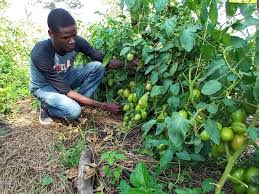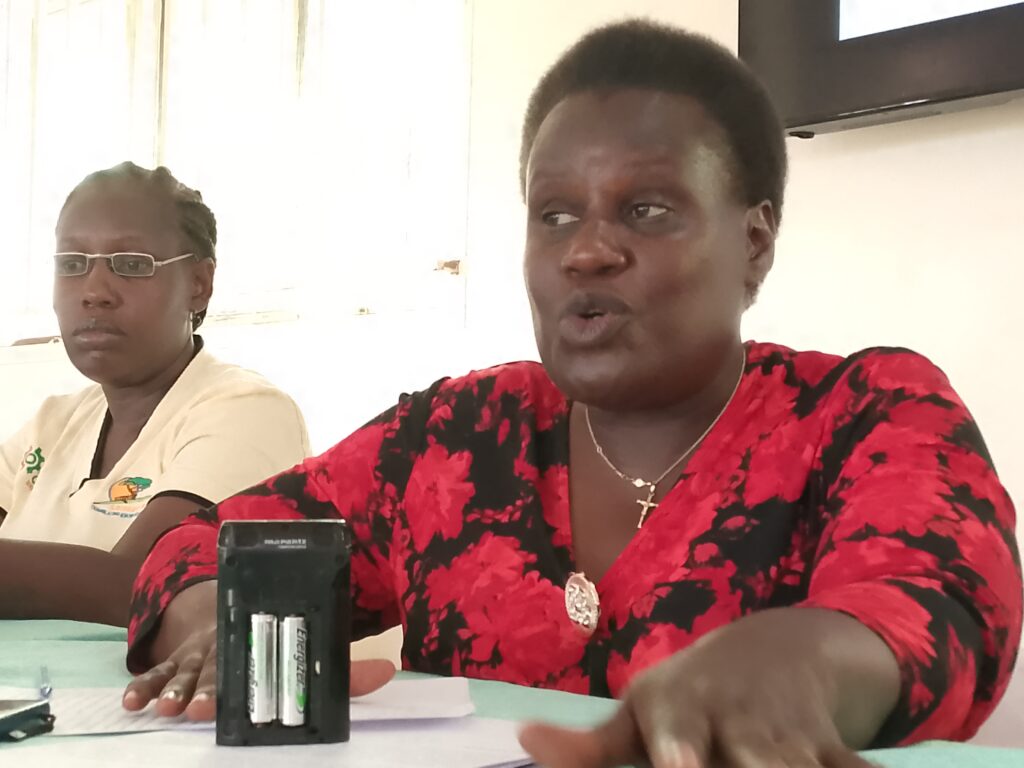
 Mama FM
Mama FM

 Mama FM
Mama FM
29 May 2024, 3:41 pm
By Byamukama Alozious
Gudie Leisure Farm, a pioneer in innovative agricultural practices, has unveiled its ambitious plans to integrate artificial intelligence (AI) into its farming operations. This strategic move aims to empower farmers with rapid access to crucial information, thereby enhancing productivity and sustainability, with a special focus on youth in horticulture in Uganda.
The integration of AI at Gudie Leisure Farm will revolutionise farm management by providing real time insights into various aspects such as crop monitoring, soil analysis, and marketing. Additionally, automated information will be provided to youths on all issues concerning agro farming, streamlining processes and increasing efficiency.
Professor Gudula Basaza, speaking to the press, highlighted how this information will enable farmers to optimize irrigation and fertilization, ensuring precise care for crops. Moreover, youths will have access to a one-stop platform for information, making it easier for them to utilize these tools effectively.
This initiative aims to support the youth trained by Gudie Leisure Farm in horticulture, as emphasised by Ms. Anicie Nabukenya, CEO of Gudie nutraceutical industry. The integration of AI will facilitate young horticulturists in accessing markets and feeding the population, particularly through the cultivation of vegetables and fruits.

Gudie Leisure Farm’s primary objective with this AI initiative is to make sophisticated agricultural technology accessible to farmers of all scales. By providing precise and actionable information, AI tools can help farmers make better decisions, leading to higher crop yields and better quality produce. Furthermore, efficient resource management and early problem detection can significantly reduce operational costs and minimise environmental impact.
Ms. Nabukenya also announced the upcoming horticulture symposium scheduled for June 4 at Gudie Leisure Farm. This event will serve as a platform for entrepreneurs, policymakers, and experts to discuss the latest trends and opportunities in the horticulture sector.
Professor Gudula Basaza Naiga, the founder of Gudie Leisure Farm, expressed concern over the reliance of big hotels on imported horticultural products. She emphasised the potential for locally grown organic produce to sustain families and encouraged the consumption of vegetables and fruits daily.
The urgency of such initiatives is highlighted by alarming global health statistics, including the significant number of deaths attributed to inadequate vegetable consumption. In Uganda, malnutrition remains a pressing issue, affecting both children and adults due to insufficient intake of horticultural produce.
District agent Ms. Nampeera Florence testified to the positive outcomes of horticulture and urged Ugandans to take a greater interest in the sector. Muringi Akiki, one of the youth trained by Gudie Leisure Farm, highlighted challenges such as water supply and storage concerns, underscoring the need for sustainable solutions.
Gudie Leisure Farm’s collaboration with youths aims to add value to horticultural products and foster a sustainable agricultural economy. With over 87,300 youths trained on the value chain, the farm is dedicated to improving the quality and marketability of produce.
In harnessing the power of artificial intelligence, Gudie Leisure Farm sets a benchmark for digital transformation in agriculture. By providing farmers, particularly the youth, with access to quick and accurate information, the farm is driving productivity and sustainability while supporting the local agricultural community.
The importance of initiatives like Gudie Leisure Farm’s AI integration is underscored by alarming global health statistics. In 2017, the World Health Organisation (WHO) reported that approximately 3.9 million deaths were attributed to inadequate vegetable consumption. Additionally, global health reports by the Food and Agriculture Organisation (FAO) projected that healthcare costs related to poor nutrition could skyrocket to $1.3 trillion by 2020.
These statistics are particularly concerning in Uganda, where 1 out of 3 children suffers from malnutrition due to insufficient intake of horticultural produce. This underscores the urgent need for interventions that promote increased consumption of fruits and vegetables, highlighting the critical role that initiatives like Gudie Leisure Farm’s AI integration play in addressing these pressing health challenges.